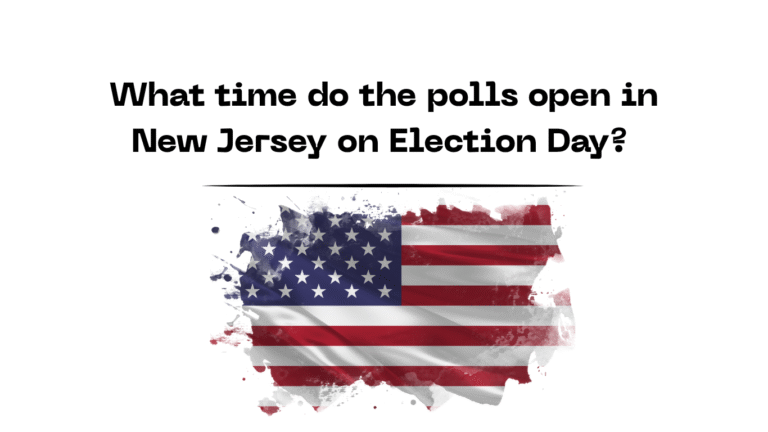In a strategic move signaling its aggressive expansion into AI driven enterprise solutions, Salesforce has announced plans to acquire data management leader Informatica in a deal valued at $8 billion. This acquisition comes as part of Salesforce’s broader effort to solidify its position in the artificial intelligence and data integration space. With AI tools increasingly reliant on clean, well-structured data, this acquisition marks a major step toward building a comprehensive data-to-insights ecosystem.
In this we dive into the technical and strategic implications of this deal, explore the product synergies between Salesforce and Informatica, and evaluate how this acquisition could reshape the competitive landscape of enterprise AI and data platforms.
What Is Driving This $8B Acquisition?
The Rise of AI-Driven Business Intelligence
AI technologies such as Salesforce’s Einstein GPT and Tableau Pulse require access to high-quality, structured, and timely data to be effective. One of the biggest challenges in deploying AI at scale is integrating data from various sources on-premises, cloud, and hybrid environments.
Informatica is a long-established leader in data integration, governance, and metadata management. Their cloud-native Intelligent Data Management Cloud (IDMC) platform processes billions of records daily across hundreds of connectors. With this acquisition, Salesforce is gaining not only tooling but a deep reservoir of experience in managing enterprise-grade data workflows.
Data as the Fuel for Generative AI
Generative AI systems like large language models (LLMs) thrive on structured data. Salesforce has heavily invested in bringing AI features into every layer of its stack Sales Cloud, Service Cloud, Marketing Cloud, and Tableau. By integrating Informatica’s data fabric capabilities, Salesforce can ensure its AI models are powered by cleaner, more contextualized data.
This means better recommendations, smarter automations, and more precise insights across Salesforce’s Customer 360 platform.
Overview of Informatica’s Technical Capabilities
Informatica’s platform delivers on several core technical capabilities that make it an ideal partner for Salesforce:
Intelligent Data Integration
- Supports 200+ data sources including AWS, Azure, Google Cloud, SAP, Oracle, and legacy systems.
- Enables real-time and batch data pipelines using a low-code/no-code interface.
- Supports high-throughput ETL and ELT workloads.

Data Quality & Governance
- AI-powered data profiling and cleansing tools.
- Master Data Management (MDM) to unify customer and product views.
- Data lineage, cataloging, and metadata scanning.
Secure, Compliant Architecture
- Multi-tenant SaaS platform with enterprise-grade security.
- Supports regulatory compliance: GDPR, HIPAA, SOC 2, etc.
AI/ML Integration Layer
- Informatica CLAIRE AI engine helps automate metadata discovery, data mapping, and anomaly detection.
- Provides APIs and SDKs to integrate with third-party AI tools and custom LLMs.
What Salesforce Gains: A Technical Synergy
Unifying Salesforce Data Cloud with Informatica IDMC
The integration of Salesforce Data Cloud with Informatica’s Intelligent Data Management Cloud (IDMC) marks a major leap in unifying customer data across hybrid environments. Salesforce Data Cloud excels at creating real-time, unified customer profiles, but its effectiveness hinges on access to clean, connected data from diverse sources. Informatica’s IDMC brings enterprise-grade data integration, transformation, and governance, enabling seamless connectivity to over 200 cloud and on-prem systems. By combining forces, the two platforms allow organizations to ingest, harmonize, and activate data with greater accuracy and speed. This unification supports real-time identity resolution, advanced AI-driven segmentation, and high-quality personalization across sales, marketing, and service functions. It also enhances regulatory compliance by embedding data lineage and governance directly into the data pipeline. As a result, businesses can deploy more powerful, trustworthy AI solutions, reduce time-to-insight, and deliver consistent customer experiences across all touchpoints within the Salesforce ecosystem.
Enhanced AI Model Training and Inference
Integrating Informatica’s advanced data management capabilities with Salesforce unlocks significant improvements in AI model training and inference. High-performing AI, including Salesforce’s Einstein GPT, relies on clean, complete, and context-rich data. Informatica’s platform ensures that data fed into models is accurate, well-structured, and governed eliminating inconsistencies and improving model reliability. With real-time data pipelines, automated metadata enrichment, and built-in quality controls, AI systems can be trained on more relevant datasets, resulting in smarter predictions and reduced hallucination risks. During inference, Salesforce’s AI tools can draw on up-to-date, trusted data sources, enhancing the precision of responses, recommendations, and automation. This synergy boosts the value of AI across use cases like customer support, sales forecasting, marketing personalization, and operational analytics. As AI adoption accelerates, the Salesforce-Informatica integration ensures businesses are equipped with a robust, data-first foundation allowing AI initiatives to scale efficiently and deliver measurable business outcomes with greater confidence.

Strategic Implications for Salesforce’s Product Stack
Strengthening the Einstein AI Layer
Einstein GPT and Copilot features across Salesforce rely on real-time data for generative responses and automation. Informatica enhances:
- Data ingestion from external platforms.
- Metadata enrichment to provide context to models.
- Cataloging and governance to build trusted data pipelines.
This will likely expand Einstein’s capabilities from CRM automation into broader enterprise AI use cases such as supply chain forecasting, fraud detection, and ESG compliance.
Accelerating Industry Cloud Innovation
Salesforce Industry Clouds (e.g., Financial Services Cloud, Health Cloud) require data from external regulatory systems and on-prem applications. Informatica’s prebuilt integrations can streamline deployment timelines and reduce the need for custom data pipelines.
With this acquisition, Salesforce can accelerate vertical-specific solutions with:
- Faster onboarding of third-party data.
- Industry-specific data models and mappings.
- Enhanced compliance monitoring.
Tableau + Informatica = Real-Time, Governed BI
Tableau has always been a visual analytics powerhouse, but often depends on third-party ETL tools for data prep. By combining Tableau’s front-end visualization with Informatica’s back-end integration and governance, Salesforce can offer a full-stack BI solution.
Use cases include:
- Real-time operational dashboards.
- Governed self-service analytics with role-based access.
- Federated queries across on-prem and cloud data sources.
Competitive Landscape: Who Should Be Concerned?
Snowflake & Databricks
Snowflake and Databricks are two leading cloud-based data platforms revolutionizing how businesses handle big data and analytics. Snowflake offers a powerful data warehousing solution that supports structured and semi-structured data, with seamless scalability and performance. It is known for its ease of use and SQL-based querying. Databricks, on the other hand, excels in large-scale data processing and machine learning through its unified analytics platform built on Apache Spark. It supports advanced AI workflows and collaborative data science. While Snowflake focuses on data storage and querying, Databricks emphasizes data engineering and AI-driven insights, making them complementary tools in modern data ecosystems.
Microsoft & Oracle
Microsoft’s Power Platform and Oracle’s Fusion Analytics offer similar data-AI integrations. Salesforce’s acquisition of Informatica may push these vendors to accelerate their own integrations or acquisitions.
Legacy ETL Tools
Pure-play ETL providers like Talend (now part of Qlik) may struggle to compete with the scale and unified vision Salesforce now offers. Customers may favor one-stop solutions that combine AI, analytics, and integration in a single subscription.
Potential Risks and Challenges
While the acquisition has major upside, there are technical and organizational hurdles Salesforce must overcome:
Integration Complexity
Merging Informatica’s platform with Salesforce’s multi-cloud architecture will require:
- Harmonizing APIs and data schemas.
- Avoiding feature overlap or redundancy.
- Training Salesforce engineering and services teams on Informatica’s tools.
Customer Migration and Licensing
Salesforce must be cautious about how it bundles Informatica features to avoid pricing confusion or customer churn. Clarity on roadmap and licensing tiers will be critical.
Vendor Lock-in Concerns
With Salesforce offering an end-to-end data-to-AI stack, some enterprise customers may worry about lock-in. Salesforce will need to reassure customers with open APIs and hybrid deployment options.
What This Means for Customers and Developers
Unified Data Engineering Workflows
Admins and developers using Salesforce will now have access to built-in ETL, data quality, and governance tools from within the same interface reducing the need for third-party solutions.
More Reliable AI Results
For customers adopting Einstein GPT and automation tools, the improved data quality will result in fewer errors, smarter recommendations, and more trustworthy outputs.

Enhanced AppExchange Ecosystem
Expect new AppExchange listings that combine Salesforce and Informatica features for specific industries and use cases, such as:
- Healthcare data compliance workflows.
- Financial customer onboarding pipelines.
- Automated AI document processing.
The Road Ahead: What’s Next?
Salesforce World Tour & Dreamforce Announcements
Expect major feature demos and integration roadmaps to be revealed during Salesforce’s upcoming events. AI + Data will be the central theme.
Informatica Product Rebranding or Integration
Salesforce may either retain the Informatica brand or embed its functionality as a core layer within its AI/Data Cloud. Watch for new product names like “Einstein Data Fabric” or “Informatica for Data Cloud.”
Industry Focused Joint Solutions
Salesforce has always leaned into industry-specific solutions. Informatica’s vertical metadata models and compliance templates could result in out-of-the-box solutions tailored for:
- HIPAA-compliant health data exchange.
- Financial audit-ready reporting.
- Manufacturing IoT analytics.
Salesforce’s $8 billion acquisition of Informatica isn’t just a big-ticket deal it’s a signal that data is the new competitive advantage in the AI era. By embedding deep data management capabilities into its platform, Salesforce is taking a major leap forward in delivering trusted, actionable AI across the enterprise.
For customers, this means smarter tools, cleaner data, and faster AI adoption. For the industry, it marks a convergence of CRM, analytics, integration, and generative AI with Salesforce positioned at the center
Whether you’re a data engineer, a Salesforce architect, or an enterprise decision-maker, now is the time to upskill in data integration, governance, and AI tooling. The fusion of Salesforce and Informatica means the future of intelligent applications will be driven by clean, connected, and governed data.
Stay ahead of the curve explore Salesforce Data Cloud, learn about Informatica’s integration patterns, and prepare for a new era of AI-powered business intelligence.















